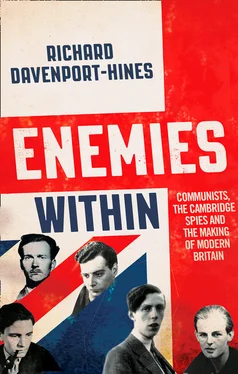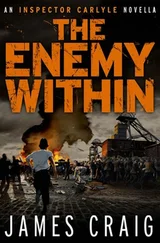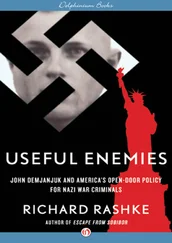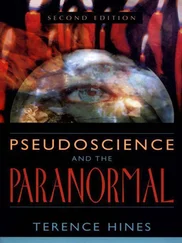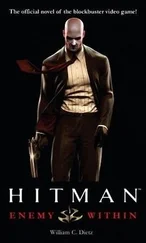Hayes left the Metropolitan Police on his election as general secretary of NUPPO in March 1919. Born in 1889, he was one of the seven children of a police inspector at Wolverhampton, and had been educated in the town. At the age of thirteen he became a clerk with the Wolverhampton Corrugated Iron Company. By attending evening classes he learnt shorthand, book-keeping, accountancy and French. In 1909 he joined the Metropolitan Police, in which he reached the rank of sergeant within four years. He was an imposing man whose elaborate waxed moustache suggested vanity. The success of the 1918 strike imbued him with over-confidence. On the Sunday nearest to May Day in 1919 NUPPO assembled the largest crowd seen in Trafalgar Square for years. In addition to thousands of Metropolitan policemen, who marched along Whitehall bearing banners with defiant slogans, they were supported by crowds of colonial soldiers and by some sailors. The most insistent protesters were policemen who had recently been demobilized from regiments on the Western Front and found reversion to military drilling to be an intolerable prospect. Hayes denounced Macready to the demonstrators: ‘being an army officer, the Chief Commissioner was introducing a system not of discipline, but of tyranny, brutality and Prussianism’. 3
The Police Act of 1919, which came into force in August, granted higher wages, but made it illegal (with a penalty of up to two years’ imprisonment) for policemen to join a trade union concerned with pay, pensions and conditions of service. The government-subsidized Police Federation was formed. NUPPO responded by calling a national strike which flopped everywhere except Merseyside. There the strike endured for three weeks, during which troops made bayonet charges to quell looting in rough districts. When the Merseyside strike collapsed, every striking policeman there was dismissed with total loss of pension rights. Lloyd George said that ‘all England’ should feel indebted to Liverpool’s resilient municipal leadership. He saw Merseyside’s police strike ‘as perhaps the turning point in the Labour movement, deflecting it from Bolshevist and Direct Actionist courses to legitimate Trade Unionism. Had Liverpool been wrongly handled, and had the strikers scored a success, the whole country might very soon have been on fire.’ 4
All NUPPO activists in London were dismissed. Several of them, including its former general secretary James Marston, took jobs with the All Russian Co-operative Society (ARCOS), the Soviet government’s commercial agency which opened in London in 1920 and acted as a front for espionage and subversion. Historians of British communism imply that these men were Special Branch plants, and mock ‘the wave of Bolshevism coursing through Scotland Yard and the Metropolitan Police at this time’, as if the recent victimization, strikes, demonstrations and dismissals were not sufficient causes of radicalization. Special Branch did have two informants planted inside ARCOS, Karl Korbs and Peter Miller, while MI5 had its own double agent embedded there, Anatoli Timokhin. None of them had been Metropolitan policemen. 5
After the collapse of NUPPO, Hayes started the Vigilance Detective Agency, which was based at Clapton Common, where he lived. A festering shared grievance is a powerful unifier of men. Vigilance was manned by a rump of NUPPO loyalists, notably Walter Dale and Arthur Lakey. Dale became Vigilance’s chief investigator. Lakey’s wife joined Marston in the ARCOS offices, where she worked under her maiden name of Kitty Reynolds. In Paris before 1914 the Okhrana’s surveillance of dissident émigrés had been delegated to a private detective agency, Bint et Sambain, in order to distance the Russian embassy in Paris from the watch. After 1920 the Cheka determined to use Vigilance in post-war London rather as the Okhrana had used Bint et Sambain in pre-war Paris. The agency’s detectives were soon recommended by Hayes to a young journalist named William Norman Ewer.
Norman Ewer of the Daily Herald
Norman Ewer had been born in 1885 in the middling London suburb of Hornsey. His father dealt in silk, and later moved to Muswell Hill. The family kept one live-in housemaid. Ewer rose up the rungs of the middle class by passing examinations. He attended Merchant Taylor’s School in Charterhouse Square in the City of London, and Trinity College, Cambridge, where he won first-class degrees in mathematics and history. From an early age, he was nicknamed ‘Trilby’ because, like the heroine of George du Maurier’s novel, he liked to be barefoot. After Cambridge he became private secretary to an exotic plutocrat known as Baron de Forest.
Born in 1879, de Forest was ostensibly the son of American circus performers who died of typhoid when their troupe visited Turkey. After a spell in an orphanage, he was adopted in 1887 by the fabulously rich Baroness Hirsch, who believed that he was the illegitimate child of her dead son. He inherited a castle and many millions in 1899, was created Baron de Forest by the Austrian Emperor and converted from Judaism to Catholicism. Subsequently he settled in England, where he held the land-speed record and was the victorious radical candidate at a parliamentary by-election in 1911. He forthwith spoiled his political prospects by suing his mother-in-law for slander. In 1912 de Forest contributed to the fund launched by the Labour MP George Lansbury to save the fiercely partisan Daily Herald from insolvency. Ewer was installed as de Forest’s nominee in the Daily Herald management: he soon became, together with the young Oxford graduates G. D. H. Cole, Gerald Gould and Harold Laski, one of ‘Lansbury’s lambs’ working as a journalist there. His idealism became the overworked centre of his existence.
After the outbreak of war in 1914 Ewer opposed conscription, registered as a conscientious objector, became an indentured agricultural worker in Waldorf Astor’s pigsties at Cliveden and published anti-war verses. He was aghast at the mayhem of the Western Front, was revolted by the militarism of the Austrian, British, German and Russian monarchies, and loathed the inequities of free-market capitalism. He saw the undoubtable humbug of the British claim to be fighting for liberal democracy when its main ally was tsarist Russia, which had sponsored the pogroms of 1903–6 and sent dissidents into captivity and internal exile. As Ewer wrote in 1924, Lenin emerged as the greatest historical leader of the epoch because he saw world revolution, not national victory in the European war, as the primary aim. German socialists collaborated with German capitalism, British socialists exerted themselves for national interests, and pacifists strove for peace. ‘Only the great voice of Lenin cried from Switzerland that all were wrong; that the job of Socialists was Socialism; neither to prosecute the Imperialist war nor to stop the Imperialist war, but to snatch a Socialist victory from the conflicts of Imperialism; to turn war into revolution.’ For Ewer, like Lenin, imperialism was the apotheosis of capitalism. 6
When Ewer applied for a post-war passport to visit the Netherlands and Switzerland, Gerald Gould assured the Foreign Office that the ‘extreme’ socialism preached in the Daily Herald was a bulwark against Bolshevism. Counter-espionage officers assessed him differently. ‘EWER is pro-German principally on the grounds that other Governments are not less wicked than the German,’ reported Special Branch’s Hugh Miller. ‘He preaches peace with Germany, followed by “ revolution through bloodshed ”.’ In Miller’s estimate, Ewer was a risk to national security: not only ‘a clever writer and fluent speaker’ but ‘a dangerous and inflammatory agitator’. 7
In 1919 Ewer was appointed foreign editor of the Daily Herald . He collaborated during that year with the pro-Bolshevik MP Cecil L’Estrange Malone and a director of the Daily Herald named Francis Meynell in formulating a programme for a Sailors’, Soldiers’ & Airmen’s Union which would certainly have been revolutionary in intent. Ewer became a founding member of the CPGB in 1920, and liaised between the newspaper, CPGB headquarters in King Street and Nikolai Klyshko, who was both secretary of the Soviet delegation that arrived in London in May 1920 to negotiate a trade agreement and the Cheka chief in London. Klyshko controlled Soviet espionage in Britain, and funded subversion, until his recall from London in 1923.
Читать дальше
